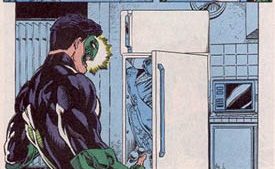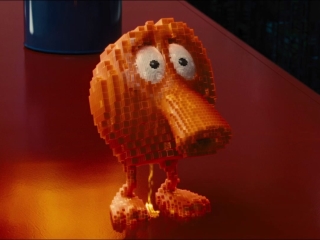The November Man is overall a silly film, a later entry into the Liam Neeson/Taken inspired Geri-Action series. This time Pierce Brosnan dusts off his suits and gets to play a retired spy dragged out of retirement, etc. Nothing special, but a reasonably well put together film (despite Brosnan’s rather alarming action-gurn). What is of note, and what really got my back up, was the insistence, in such a throw-away film, to depict a rape against the main female character (played by Olga Kurylenko, another Bond alumnus who plays a very similar character in Quantum of Solace). I don’t actually mind the fact that her character is raped – it makes sense – but what got to me was the insistence on seeing it – in POV. Not much mind, but enough. And it got me thinking. Why isn’t it enough for us to know she was raped? Why then later does this character have to suffer a flash back that leaves her useless and unable to avenge herself (you know – so the guys can do the killing)? Why does her whole character have to be defined this way?
Now The November Man is throw away, I doubt we’ll care about it in 5 minutes. But we will care about the preponderance of women being raped in film, and the consistent use of rape as the way to torture, threaten, and emotionally scare women. Once again women’s sexual “virtue” becomes a dominant aspect of their character. How they react, how they’re scarred, how they recover becomes part of the continuing moral grading of women based on sexual morality (and how men have to come in and deal with it). The woman is inevitably passed from one man (bad) to another (good) – although both are violent and murder others. But hey I guess that’s just how men express love, and hate, and maybe hunger. By shooting people.
Does any of this matter and what does it have to do with refrigerators? Women in Refrigerators is a website set up in 1999 to catalogue the various atrocities that happen to female characters in comics, started after a Green Lantern found his dead girlfriend in the aforesaid white good. And it’s an extensive list in which women are transformed from people to motivating factors, and of course the worse their death/rape/mutilation the greater the cathartic violence the hero gets to enact. This at a time when Hollywood is becoming more and more male-centered (check out this Variety report). Maybe we need a Hollywood Women in Refrigerators? I think, however, that it would be so extensive so as to break the internet.
As long as we keep seeing women in terms of sexual virtue, in which their whole lives are defined by a sexual trauma that can only be redeemed by a “good” man we’re going to keep having wider social issues concerning real relations between men and women. As men we need to start objecting when women are reduced to this. And we need to start recognizing how it also de-humanizes us – in which we are reduced to vengeance machines carrying massive anxiety about sex and sexuality. Frankly it’s not very grown up.
In 1974 Laura Mulvey published her ideas on the male gaze, suggesting that Classical Hollywood reduces women to passive objects simultaneously desired and hated by a ‘male’ camera. Although Mulvey’s ideas are not perfect, and are deeply rooted in Oedipal silliness, her idea got traction because she was on to something important that overall women are being used for plot motivation, from which male characters act out the male audience’s anxieties. Indeed, these days, women barely feature in Hollywood films (only 30% of speaking characters). Lots has been said about the harm this does to women. And quite right. But we should also consider the harm it does to men, in limiting our ideas about women. They become problems, not people. And if that’s all we see it becomes real. Picking on one representation is neither here nor there and The November Man doesn’t matter. But women, and men, do.


